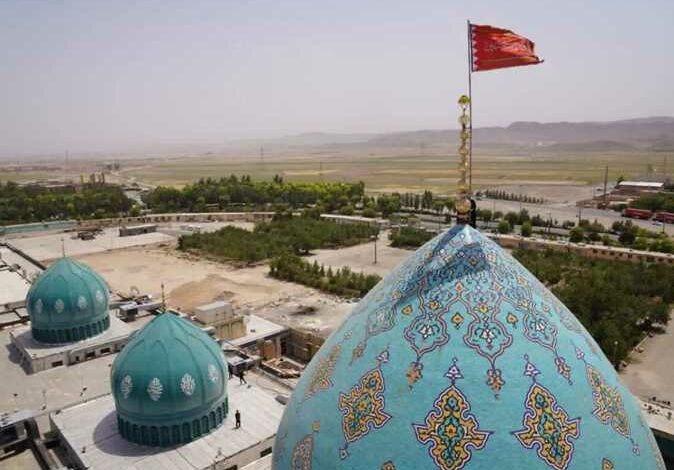
Minutes after Iran’s Supreme Leader vowed ‘severe punishment’ to Israel in response to the assassination of Palestinian leader Ismail Haniyeh in Tehran on Wednesday, a symbolic red flag was raised over a major mosque in the holy city of Qom.
This marks the sixth time the flag has been raised in Iran’s history.
The last time this flag appeared was in January following a terrorist attack in Kerman province, when ISIS militants detonated two bombs along the route of a funeral procession commemorating the assassination of General Qassem Soleimani.
Khamenei stated on Wednesday, “The criminal and terrorist Zionist regime caused the martyrdom of our dear guest in our home and saddened us,’ adding, “It has also paved the way for its own severe punishment.”
He said that it is Iran’s duty to avenge the assassination of Haniyeh, who was in the Iranian capital to attend the inauguration ceremony of President Ebrahim Raisi.
Khamenei affirmed in a conference to offer condolences to Haniyeh’s family and the Palestinian community, “It is our duty to avenge his blood in this bitter and difficult incident that occurred on the territory of the Islamic Republic,” declaring three days of national mourning throughout the country for the martyrdom of Haniyeh.
Why did Iran raise the red religious flag?
Iran has raised the red religious flag as a warning of a severe battle to come.
In Shiite traditions, red flags symbolize blood shed unjustly and serve as a call for revenge for the martyred.
Red is also a color of Iran’s national identity, symbolizing strength in battle and courage. It is one of the colors of the Iranian flag, below the green representing Islam and the white symbolizing peace.
In ancient Iranian traditions, red flags were raised over the homes of those whose blood had been shed and were not lowered until vengeance was taken. In recent years, red flags have been raised during the processions of those killed “unjustly” and over the domes of mosques and shrines, as a sign of national mourning and a pledge of revenge.
Although authorities have been raising the flag inscribed with “Ya Litharat al-Hussein” (O avengers of Hussein) after “terrorist” operations in recent years, to signify their determination to take revenge, the latest move has been met with widespread agreement from mourners chanting for revenge.
Edited translation from Al-Masry Al-Youm




